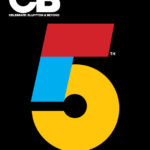Since I moved down here almost five years ago, I have suffered pretty much all year long from allergies. I simply accepted it as a tradeoff of living in a climate that is warm, and therefore almost always blooming. About a year ago, a co-worker told me that eating “local” honey all year could significantly reduce, if not eliminate, the side effects from allergies. Naturally I was skeptical. At the time I was taking a prescription allergy medicine on a daily basis, as well as the occasional over-the-counter drug, and still was not feeling 100%. Something so simple could not possibly work for me.
I’m happy to say that I was wrong. I was able to find some honey from Hardeeville in a health food store on the island. My husband and I began having honey every night in a cup of tea. We started doing this in early February, and I was amazed when I realized that by May I had stopped taking my prescription medication and had rarely had a need for an over-the-counter one. About that same time, we happened to spot some beehives in the farm in Hilton Head Plantation, where we live. We told ourselves that if we were able to buy honey that came from our own backyard, it would be even better.
It was because of this, that I met an amazing (and brave) man by the name of Larry Paton, who not only has hives in our plantation but also at the Coastal Discovery Museum, as well as his second home in Ohio. Beekeeping is one of the oldest forms of food production, with evidence dating back to about 13,000 BC. Larry has been doing it since about 1959, after a chance encounter with a beekeeper while on a plumbing job. Larry had always been fascinated with bees and beekeeping, and, after eliminating the bees at that job, the keeper got Larry started on his first hive.
Larry is the keeper of about 60,000 bees per hive, and has six hives here. In any given spring, those hives can produce from 400 to 600 pounds of honey. Hives house a colony of bees, which consist of a single queen, many workers (infertile females), drones (male honeybees) and a brood (eggs, larvae and pupae). The beehives consist of stacked boxes, and each box contains several frames. The frames hold a sheet of wax or molded plastic that resembles honeycomb. The bees produce their own wax and build honeycomb using these artificial frames as a foundation. They kind of look like hanging files in a filing cabinet.
As Larry demonstrated to me (from the safety of my car), he removes a frame from the box, brushes off the bees by hand and replaces it with another frame. All this is done while wearing a protective suit and heavy leather gloves to protect from stinging (although I still thought he was crazy for doing it). A smoker can also be used to calm the bees and make it easier for him to work. He then places the frames into an extractor, which spins and releases the honey to the bottom and pours it into jars.
Residents who have farm plots in Hilton Head Plantation have a lot to thank Larry for keeping his bees. Since honeybees never travel more than three miles from the hive and they always come back to the same colony, there are always bees hard at work pollinating the crops. More pollinating means better crops for the farmers.
It is common practice for a large beekeeping business to take its crew of bees on the road. Flatbed trucks are loaded with beehives and parked in large farms and orchards, with owners working their way from Florida in the early spring and up to northern farms as the season progresses. These variations of crops and flowers give the honey its color and taste. For instance, if a bee colony is feeding off an orange orchard, the honey will take on that aroma and flavor.
There are many benefits to being a beekeeper, though I’ve promised Larry that he will never have any competition from me. Honey is the only natural food that doesn’t spoil, so you’ll always have some on hand for eating and baking. Adding it to bread dough will slow the staling process. Not to mention that the beeswax byproduct can be used for candle-making, as a lubricant and as a wood polish.
Whether you are an allergy sufferer or not, I highly recommend that you try some of Larry Paton’s honey. It by far tastes better than anything you’ll buy in the store, especially when it’s eaten right out of the hive, as Larry was kind enough to share with me (I managed to crack my window just enough to grab a bite). You can pick up his honey at the Coastal Discovery Museum or give him a call at 843-689-9157.


